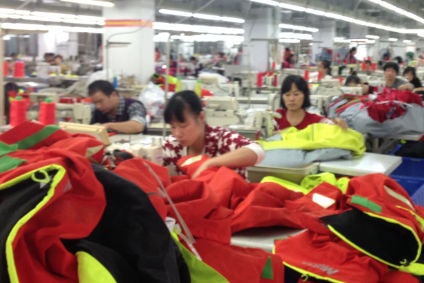
Garment makers representing close to 70% of global apparel exports have agreed minimum terms they hope will raise the bar on the purchasing practices of fashion brands and retailers.
The 13 apparel and textile industry manufacturing associations from nine countries across Asia, the Middle East and North Africa, are working together as part of the ‘Manufacturers Payment and Delivery Terms’ initiative.
They are hoping to tackle the imbalance of power in the buyer-supplier relationship, which came to a head during the Covid-19 pandemic with order cancellations, especially from European and US brands and buyers, leaving many Asian producers with their backs against the wall.
A meeting of the group last week confirmed that while buyer’s own initiatives to improve purchasing practices are important, they are not sufficient – and manufacturers must play a stronger role in setting standards that support mutually beneficial and sustainable partnerships.
Participants also agreed to make ‘commercial compliance’ the core principle of the initiative, making sure purchasing practices do not misuse buying power to the obvious and avoidable detriment of the manufacturer. In the next phase, the associations aim to build structures to enforce ‘commercial compliance,’ including instruments to achieve transparency.
Among other goals, the group plans to draft a set of minimum expectations and outline recommendations and best practices related to payment and delivery conditions. It will set out certain red lines that purchasing practices must not cross – essentially setting the bar for ‘commercial compliance.’

US Tariffs are shifting - will you react or anticipate?
Don’t let policy changes catch you off guard. Stay proactive with real-time data and expert analysis.
By GlobalDataThere will also be a range of recommendations to improve purchasing practices, and recommendations for further research, including an international arbitration mechanism, the transfer of ownership of goods, and research aimed at modernising performance indicators that measure the value of end-to-end contributions to profitability.
“Publication of the red lines in a few weeks’ time will enable us to put the principle of commercial compliance into practice,” explains Matthijs Crietee, secretary general of the International Apparel Federation (IAF), which is managing the initiative.
“The list of recommendations for improvement of purchasing practices and for research meanwhile will form the foundation for a structural dialogue that we are setting up in phase 2. This will be a dialogue on the improvement of purchasing practices involving the world’s main apparel manufacturing associations, buyers and organisations representing them.”
Launched in January by the STAR Network, an inter-Asia Network of Producer Associations, and funded by GIZ FABRIC, the regional project of Germany’s international development agency, the initiative is also supported by the Better Buying Institute and the OECD.
Participants are now working on a white paper that will be released towards the end of April, following feedback from an advisory board including major stakeholders representing buyers, government and academia.



